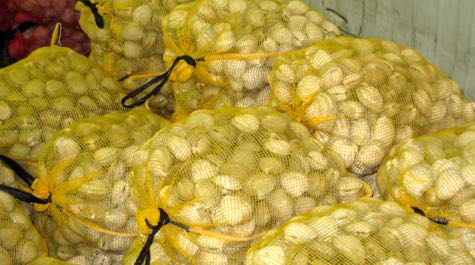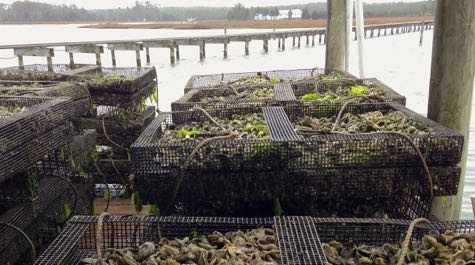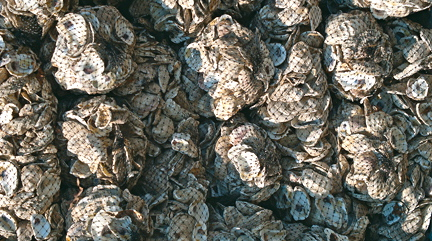Value of Virginia aquaculture reaches another all-time high
$55.9M farm-gate value in 2014
Virginia shellfish farmers sold $55.9 million in oysters and clams in 2014, an increase of 14% total revenue for clam growers and 39% for oyster growers, according to an annual survey of shellfish aquaculture in the state.
“It’s all-around good news for the industry,” says Karen Hudson, Virginia Institute of Marine Science extension affiliated with Virginia Sea Grant. Hudson co-authored the “2014 Virginia Shellfish Aquaculture Situation and Outlook Report."
Virginia has been the nationwide leader in growing hard clams for years, and in 2014 its clam industry reached an all-time high of 243 million sold. Not to be out-done, Virginia's oyster growers sold 39.8 million cultured oysters in 2014, making the Commonwealth a leader in East Coast production for the year.
“Our report provides a snap-shot of how industry is doing, and everything I’m hearing from growers is that demand is up," says Hudson. She suggests there could be any number of driving forces.
The “Virginia Shellfish Aquaculture Situation and Outlook Report” has been produced annually by Advisory Services at the Virginia Institute of Marine Science since 2005. The survey and report provides annual assessments with which to gauge growth and inputs in Virginia’s shellfish aquaculture industry. This report is based on an industry survey completed during the first quarter of 2015.
The 2014 results are drawn from 72 completed surveys returned to VIMS. Respondents include 16 clam growers, 62 intensive oyster growers, 13 extensive oyster growers, 5 shellfish hatcheries, and 9 growers who cultured both molluscs.
In intensive culture, single oysters are planted in cages, racks, or floats, then carefully tended for harvest primarily in the half-shell market. In extensive culture, growers allow hatchery-raised oyster larvae to settle on oyster shells in large tanks on land. They plant the resulting “spat-on-shell” directly on bottom almost immediately, and then allow them to grow freely into clumps of oysters that are harvested for sale as shucked meat.



